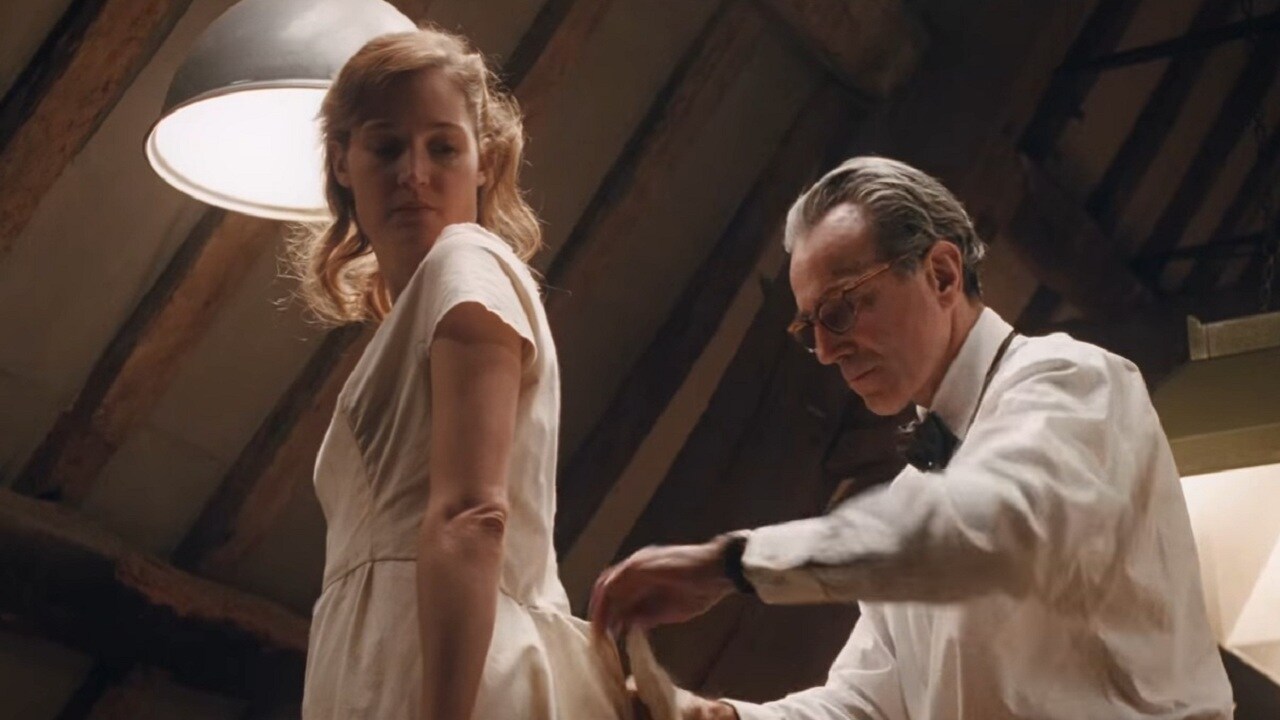Phantom Thread movie review: Daniel Day-Lewis hangs up his boots in style with Paul Thomas Anderson's melancholic drama
-
Director: Paul Thomas Anderson
As per Paul Thomas Anderson, a marriage is simply a set of threads woven haphazardly together and the key to a long lasting liaison is finding the right string to pull to make an elegant design. But as per him, a marriage is also about the sticky, poisonous and inelegant filaments that exist between these seemingly elegant seams. Phantom Thread changes in shape and message with every viewing, and as the best film to release this week you would be foolish to miss such an experience in the theater.
In what is supposedly his final acting role, Daniel Day-Lewis plays Reynolds Woodcock, a dressmaker in the '50s England who caters to the crème de la crème of society like royalty, socialites and even movie stars. He lives a very thorough, workmanlike but solitary life in a countryside mansion though he is frequently visited by his equally robotic sister (Lesley Manville) whom he also collaborates with to make dresses. Things take a turn when he falls for a young waitress named Alma (Vicky Krieps) whom he whisks away from the restaurant she works in to become his muse in his mansion. At first, it is the picture perfect marriage but as the days go by, Woodcock inevitably sees signs of wear and tear in the relationship.
The aspect to treasure about this film is how deceptively simple it seems but packs so much beneath the rather ostentatious period detailed surface. With mere silences, Anderson condenses effective commentary on the very nature of human compatibility and the choice between obstinate machine like singular human efficiency and passionate love whose byproduct is dependence. It is also very clever filmmaking – in that it seems to render one message when seen from the eyes of Lewis’ character and another when seen from Krieps’. The undercurrent of control and power play rises to deafening levels with each silent stare between the characters.
You might find yourself asking how you are supposed to react to how these two spectacularly mismatched people react to each other. It is never very clear and it is an unsettling journey as we see Woodcock and Alma unravel, their closeness seeming claustrophobic yet their distance seeming melancholic. This is not just a film about a bad marriage, mind you, because that would be simplistic filmmaking – like the trashy Jennifer Aniston flick The Break Up for instance. Phantom Thread is actually about what a good marriage is but what it questions is how much metaphorical blood you are willing to spill to keep the almost vampiric exchange between the other person under your roof.
The ubiquitous thematic appeal of the film is why Day-Lewis, for the first time in decades, is playing a ‘normal’ person. He’s delightfully arrogant as always, but there is a softness, a certain every man-ness to his persona that works as a mirror to those watching him. Beneath the obsessive compulsive, method crazy, overtly British perfectionist who abhors butter, bubbles a dude who wants to reach out for an aloo parantha made by mummy – and this meta performance is a weirdly fitting way for Day-Lewis to say goodbye to the silver screen.
The star of the show is actually Krieps whose demeanor and poise is so perfectly calibrated she is positively incandescent. It is difficult to talk about her performance without getting into spoilers but it is safe to say hers is one of the best Hollywood debuts in years and she is going to be a huge star soon.
Is this Anderson’s Barry Lyndon? Not quite because it does not totally embrace the painterly nature of the narrative the way Stanley Kubrick did, but with each passing film, Anderson’s effort to be this generation’s Kubrick seems more naked. I cannot think of any other studio filmmaker out there who flat out makes auteur-driven prestige projects with total creative liberty – let us hope the professional marriage between Anderson and his producer Megan Ellison lasts two whole lifetimes.
Published Date: Feb 02, 2018 09:18 AM | Updated Date: Feb 02, 2018 09:32 AM



